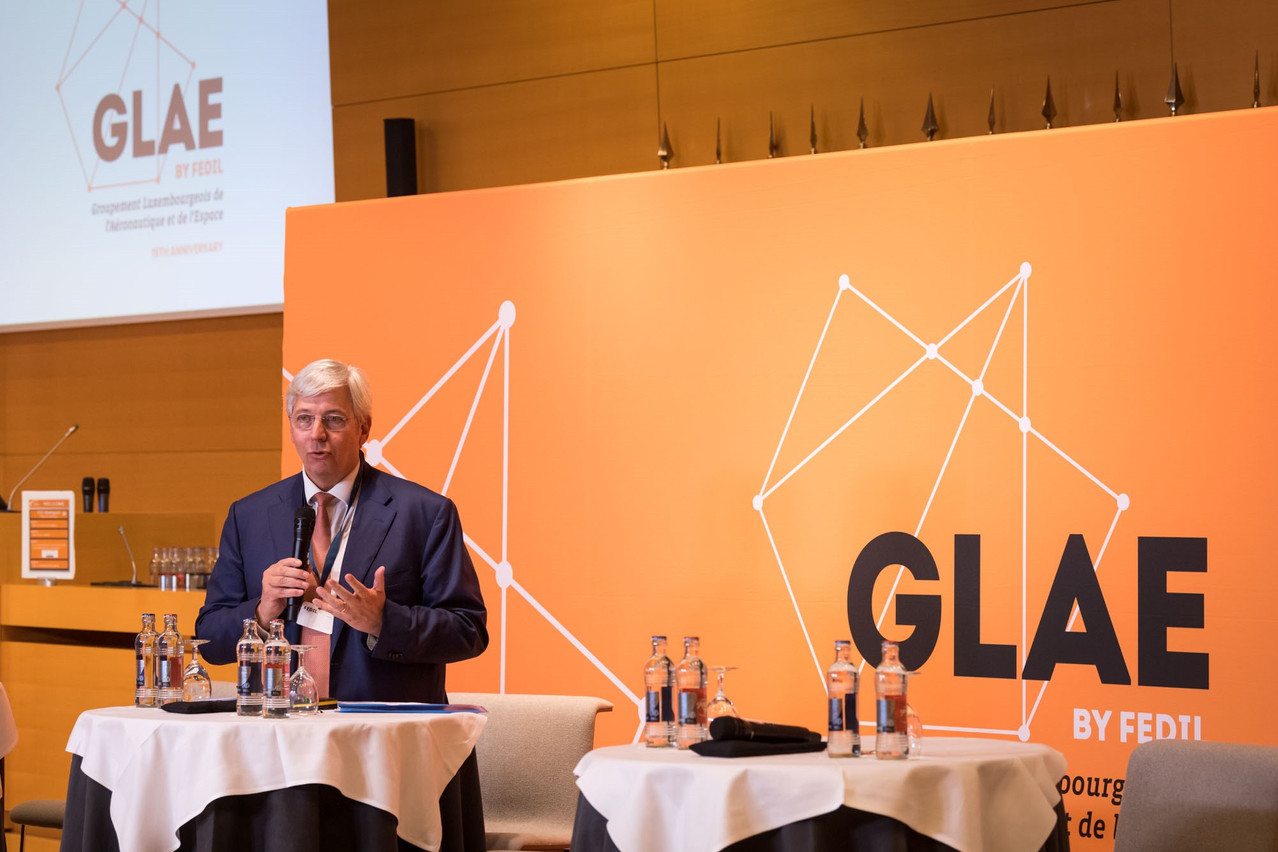Luxembourg’s space sector didn’t come into existence with the creation of the Spaceressources.lu initiative under former economy minister Étienne Schneider (LSAP).
Although it began with the creation of SES in Luxembourg in 1985, it was in February 2005 that the GLAE held its first meeting. At that time, Post Luxembourg, Hitec Luxembourg, Luxspace, SES and Telindus Luxembourg came together to form, under the banner of industry lobby Fedil, a non-profit association to provide Luxembourg companies, among others, with the opportunity to create synergies at the national and European level while being a single interlocutor for the government to address various issues.
Over time, the group also positioned itself as an economic actor participating in the country’s official economic missions and exchanging with the authorities on issues related to the initiatives taken by the authorities in the framework of European Space Agency programmes and the establishment of a space policy in the grand duchy.
Yves Elsen, president of the GLAE, during the ceremony underlined the main challenges ahead for this sector of activity: “Our sector is facing three major challenges for the years to come. The first is to attract and retain talent. The second is to develop professional training. And the third is to promote the sector and public-private partnerships.”
840 jobs
Present at the conference, economy minister Franz Fayot (LSAP) said that “thanks to the expertise of its member companies, the GLAE has established itself over the past 15 years as a privileged interlocutor of successive governments. This continuous interaction has allowed the Luxembourg space sector to flourish.”
According to the latest data from the space directory of the Luxembourg Space Agency (LSA), the aeronautics and space sector currently comprises some 60 companies, with 840 people employed in the space sector.
When asked about the weight of the economic activity of this sector in Luxembourg, Fedil indicated that it was “difficult to estimate, but that the contribution of the space sector to the country's GDP is one of the highest ratios in Europe.”
